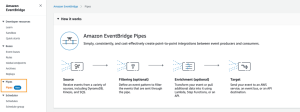
These are monumental topics that command volumes of diligent research, backed by empirical evidence and citations from subject-matter experts. Yet, I’m afraid we don’t have the time for this.
In 2022, I had a video meeting with a core member of OpenAI. It was still a project being “leaked” at the time, and the floodgates of ChatGPT and DALL-E were not yet ubiquitous. Let’s call my insider companion “X”.
We had no real agenda for our call, other than to discuss his role in this project, and for me to learn more about this tidal wave of AI on the horizon. Interestingly enough, X was responsible for leading the storytelling and creative division of OpenAI.
After explaining in so many words that quantum computing provided the gateway and engine for AI to source, scrape, compute and process seemingly endless digital content for conversation and creation, I asked X the following:
David: But what does this mean for creativity? You know, human creativity?
X: AI has the capacity to push boundaries of creativity. For those that learn how to harness the power that AI provides, they will realize there is no limit to what they can do.
David: But how do we know the difference between what a human creates and what AI is responsible for creating?
X: Does this really matter if the result is something original?
X went on to tell me a brief story. He was a writer himself, even a poet. Several years back he had used AI generative technology to produce a poem – feeding it themes and ideas, like remodeling a home. The result? I won major awards for this poem, and nobody would have known that it was generated through AI.
As I mentioned earlier, we do not have much time. The pace at which AI advances is beyond anyone’s wildest imagination – namely, because it is something that has already been brewing for nearly a decade or more. Algorithms and data – necessary ingredients. Private funding, government funding, and academic resources bolstered this to quantum levels, and now, Pandora’s box has simply opened.
Yet, how many of us actually understand how it works? How many care to question this? Afterall, when I was asked to write a byline about these topics “Impact of AI in Storytelling and Creativity”, one of my first thoughts was: let’s put this into ChatGPT and see what happens. I’m curious. Full transparency, I did not do this, but perhaps I will later, you know, just to see.
The real point that I’m trying to make is this: The very action of writing this original content, and offering it for distribution, has unprecedented repercussions. By simply putting this byline out here for readers, it presents itself to the quantum predatory powers of AI to find and digest the words. This act of AI consumption will ultimately be regurgitated to others seeking answers to these questions. As you can see, for writers, for visual artists, for storytellers – even the act of creation has a new, potentially threatening force to consider.
Interested in how writers and content-makers feel about this matter? It’s happening now! Check out this recent New York Times podcast about the writers revolt against A.I. companies.
Through the complex evolution of AI, one thing seems crystal clear – AI will not stop. It will continue to gobble up the fruits of our creative labor in biblical proportions. Yet, the question remains, what will this mean for creativity? Human creativity. The answer here is also elemental.
Imagine the world. The planet. Before humans. Mother earth became abundant in life. Original matter beget more life, and over millions of years we found ourselves in likely the most bio-diverse planet in the universe. These creations of living organisms – from cherry tomatoes to sequoia trees – are divine. They are pure. They are mother nature.
Now imagine our world at present – inhabited by humans for centuries. What did we do? Survival led to consumption. Intelligence led to innovation and power – mankind’s control over the animal kingdom, planet earth, and ourselves. We, as a species have extracted all the divine elements that the earth has offered – producing anything from Roman columns to jet-fuel.
If we take these two fundamental explanations at face-value, the same parallel can be drawn between human creativity and AI creativity. Human creativity, like mother nature, possesses an innate and divine capacity to create. Artificial intelligence, like humans, relies on something else to survive, thrive and evolve. And that ‘something else’ happens to be humans.
Can you comprehend the difference? Artificial intelligence is a phenomenal manufacturing force for everything that is contained within our own human capacity. And within our own human capacity for creation, we each maintain a galaxy. Now it’s just a matter of whether or not we choose or remember how to tap into it.
If we stop being creative. If we lose our muscles and synapses to create for whatever reasons, similar to the biodiversity of mother earth – it will level-out, and ultimately, sadly, start to decline.
This is Part I of this story. Stay tuned for the next topic as it relates to the Impact of AI in the Academia.
By David Contor

